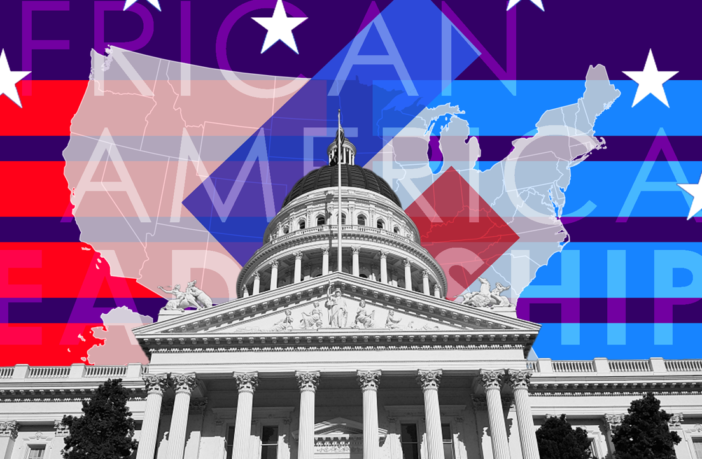Last Updated on October 22, 2024 by BVN
Overview: The number of Black candidates for office at the national and state levels has increased remarkably this year. There is an awareness that Black representation is empowering to the Black community. A 2021 report found that higher levels of racial resentment do not necessarily imply “unyielding opposition to Black candidates.” This highlights the importance of campaign context in helping to shape how voters respond at the polls to racial, partisan, and ideological cues. Please take the included survey. It is seeking to identify Black candidates running for local office across Riverside and San Bernardino Counties.
S. E. Williams
I certainly celebrate all in our community who have thrown their hats into the political ring this election cycle.
As a Black woman, I am especially proud of the men and women of African ancestry who raised their hands to serve even with the knowledge that in most instances, they entered their respective contests with a built-in disadvantage due to their race/ethnicity.
Whether competing for mayor, county supervisor, city councilmember, community college board trustee, school or water board member, or any of the other locally elected positions on the November 5, 2024 Ballot, this year, more Blacks are leveraging their commitment to equity, desire to work on behalf of their community and leadership capabilities to challenge for many of these locally elected positions.
Before going further, I want to take this opportunity to remind all voters of how important it is that we each take time to vote all the way down the ballot. This is because local contests are ordered on the ballot after federal and state competitions and in a Presidential Election cycle, voters sometimes vote the top of the ballot and skip the local competitions. And yet, local elections are as important to our daily lives as federal and state contests that ultimately determine policies on issues that impact at the local level.
The history and legacy of slavery, structural and institutional racism, coupled with the ongoing struggle for equal access to the ballot since the Civil War, has resulted in more than 160 years of effort to elect candidates at the local, state and federal levels who represent the voices and concerns of Blacks. Black representation is empowering to the Black community.
To be represented by someone who not only mirrors my identity but also shares lived experiences is truly empowering. The strength lies in the collective tapestry of shared experiences—a resonance that amplifies the voice and narrative of our community. There is profound understanding, empathy, and compassion when advocating for a community whose values you intimately share.
Kaylan A. Tanner
Data shows the number of Black candidates for office at the national and state levels has increased remarkably this year. For example, in February, just ahead of the March Presidential Primary, across California voters selected candidates for several offices including one US Senate seat, 52 congressional seats, 20 State Senate seats and 80 State Assembly seats. Blacks were demonstratively over-represented in these primary races for federal and state offices when compared to their percent of the state’s population.
The 2022 American Community Survey, shows Blacks comprise only five percent (5%) of California’s population, yet during this year’s primary races for federal and state offices, Black candidates in CA competed in “11.5% of the contests for U.S. House seats, 23.8% of the contests for State Assembly seats and 30% of the contests for State Senate seats. In all, according to a report by California Black Media, 53 Black candidates participated in 32 of the 154 statewide elections. “That’s about 21% of the races.” But, what are their chances for electoral victory in November? Will all of the race baiting that has overflowed from Republican Presidential candidate Donald Trump and his supporters be a roadblock to their potential victory at the local level? It is difficult to know in a region that is as closely split politically as the rest of the nation.
A 2021 University of Chicago report titled, What Leads Racially Resentful Voters to Choose Black Candidates? noted how racial resentment has historically been associated with or resulted in decreased support for Black candidates. But, the study also found that there are instances where the exact opposite happens. This has resulted in some racially resentful voters casting ballots for a Black candidate over a white competitor. In other words, the report shows higher levels of racial resentment does not necessarily imply “unyielding opposition to Black candidates.” This is because such voters “respond to partisan and ideological cues about the preferences of Black candidates.”
The report noted this is because the traditional measure of racial resentment captures more than just racial animus. Some Black candidates—particularly Republicans with an individualist message—can benefit electorally from “higher levels of racial resentment in the electorate.” This highlights the importance of campaign context in helping to shape how voters respond at the polls to racial, partisan, and ideological cues.
An answer to the question of whether Black candidates increase African-American electoral participation, can vary. At best, according to some reports, African-American candidates have a temporary effect on turnout among Black voters. Another report found that African-Americans in cities with African American mayors showed increased rates of “political efficacy and participation” than African-Americans in cities with white mayors. This is evidence that minorities candidates and officeholders can increase minority turnout.
It is, however, impossible to discern the race/ethnicity of a candidate from a sample ballot. Black voters, like most voters, are driven by the issues, the qualifications of the candidates and who they feel will best represent them. Keep in mind the idea of Black representation is empowering. Although Ballotpedia invites all candidates to complete its Candidate Connection survey which asks him/her to share information about their race and ethnicity, the question is optional. Even when the candidate chooses to answer it, their response is not a published part of their Ballotpedia profile. Instead, the data is aggregated for use in comparative analysis according to the Ballotpedia website.
There are a total of 52 incorporated cities between Riverside and San Bernardino Counties. Due to the vastness of this region, it is difficult to identify all the Black candidates running for public office in the Inland Empire. For this reason we are seeking your assistance. If you are a Black candidate or are aware of a Black candidate(s) in your community running for local office this November, help us build this list of Black candidates by taking a moment to complete this quick survey:
The journalist Susan L. Taylor once wrote, “Whatever we believe about ourselves and our ability comes true for us.” There are many opportunities to continue breaking racial barriers as it relates to public office in the inland region, just as there are nationally. For the sake of empowerment and representation, let’s know who is on the ballot and support them as we can.
Of course, this is just my opinion. I’m keeping it real.



